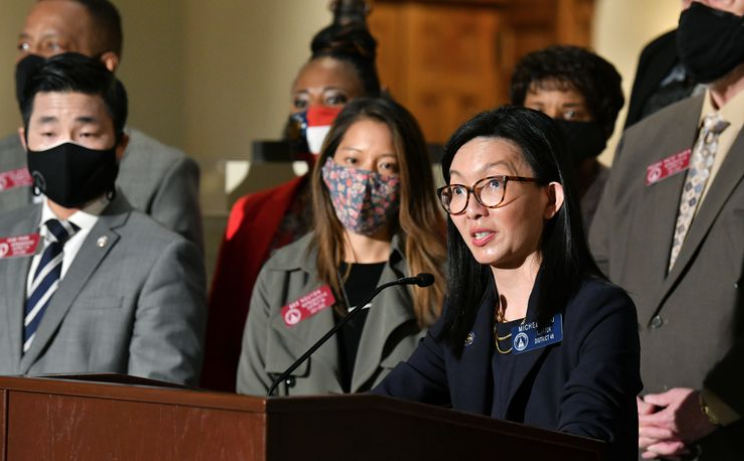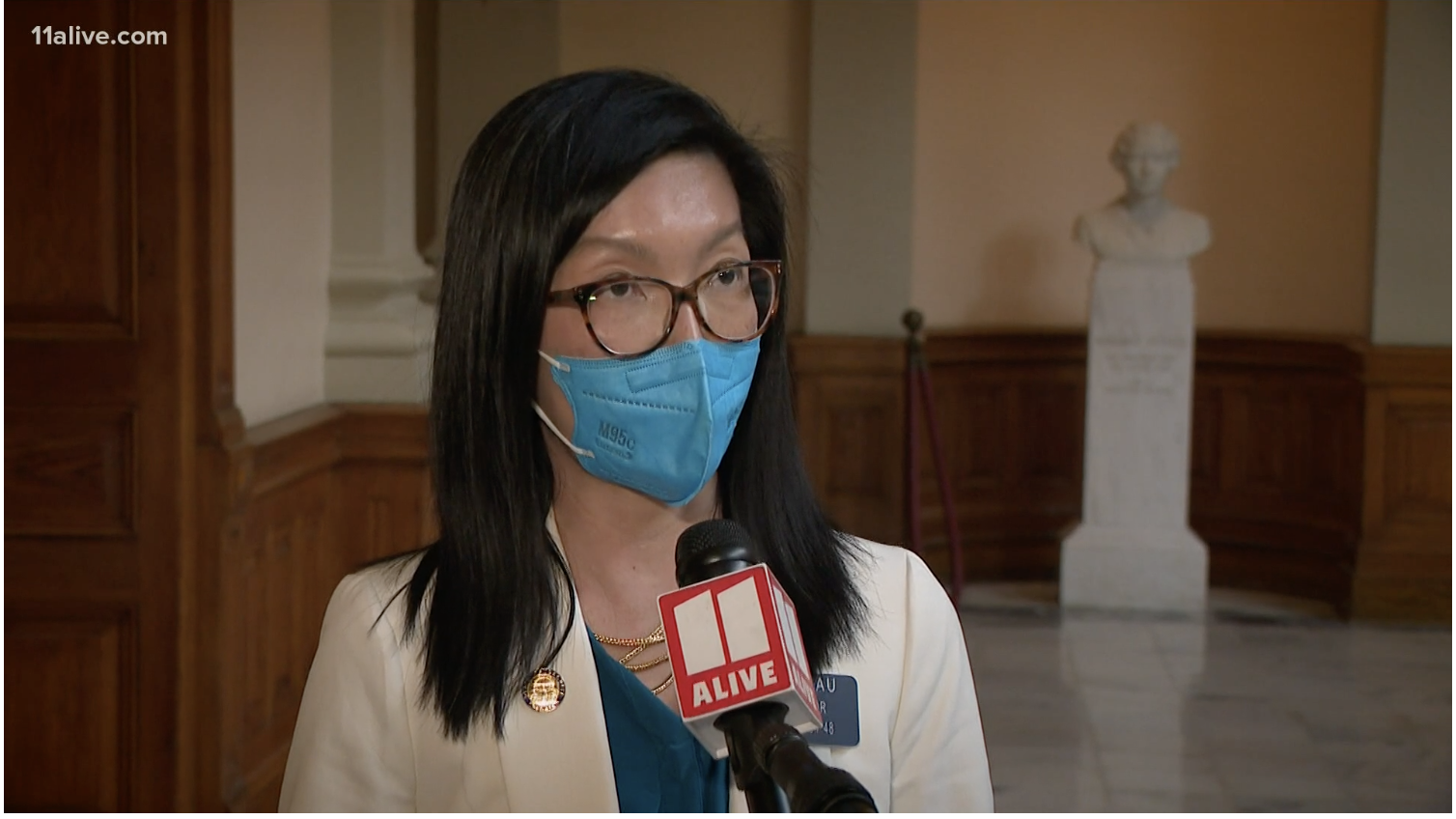Senate district flipped by new map causes
first-term Democrat to eye House seat

State Sen. Michelle Au, D-Johns Creek, announced that after seeing the changes the Republican-dominated General Assembly made to her district during reapportionment, she will now campaign for a seat in the state House.
(Hyosub Shin / [email protected])
Recently approved maps redrawing lines for legislative districts have pushed a first-term Democratic state senator — and the first Asian American woman to serve in the Georgia Senate — to attempt to switch chambers after her seat was drawn in a way that drastically changed its racial and partisan makeup.
State Sen. Michelle Au, a Johns Creek Democrat, said she made the practical decision to switch races and run for the House seat now held by Democratic state Rep. Angelika Kausche, who isn’t seeking reelection.
















 An emergency room nurse in Savannah receives a dose of the Pfizer-BioNTech COVID-19 vaccine in December 2020. PHOTOGRAPH BY SEAN RAYFORD/GETTY IMAGES
An emergency room nurse in Savannah receives a dose of the Pfizer-BioNTech COVID-19 vaccine in December 2020. PHOTOGRAPH BY SEAN RAYFORD/GETTY IMAGES